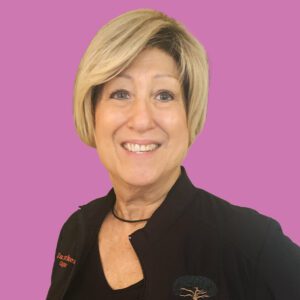When to Schedule Important Checkups
No matter your age, regular checkups and preventive care are important when it comes to maintaining your health. However, the medical needs of adults change as they age, so routine care looks different at age 72 than it does at 27. Here, we’ve consulted with healthcare professionals to learn what optimal routine checkups should look like for seniors.
Most people are aware of the importance of routine checkups, and the first ones that come to mind are usually an annual exam with a primary care physician, dental checkups, and annual eye exams. However, the body’s needs change as adults grow older, and increasing age often carries an increased risk of developing a variety of health conditions. While it’s still important for seniors to keep up with the routine checkups mentioned above, those are no longer the only routine exams that they should be scheduling.
Should Senior Adults Go in for Routine Checkups More Often?
The answer to this is often “yes,” according to Nancy Bagamery, a caregiver with Live Oak Caregivers. “It depends on medical history,” she explains. “There is no hard and fast rule about how often seniors should see their healthcare provider.


However, it really is ideal for seniors to have their yearly checkup at the very least. Taking preventive measures helps slow down the progression of many common diseases in seniors.”
Everyone knows the saying, “An ounce of prevention is worth a pound of cure,” and this is especially true when it comes to seniors and their health. Even if you feel perfectly fine and healthy, a range of conditions – some of which can be life-threatening – present no symptoms in their early stages.
It’s important to keep up with routine checkups not only for the sake of maintaining your health and well-being, but to maintain relationships with your healthcare providers. It’s always beneficial to have go-to doctors and specialists who are familiar with your medical history.
Greg Joyner, a nurse practitioner with Morning Pointe Senior Living, has some advice for making sure you have access to routine testing. “It is recommended that older adults utilize the Medicare Annual Wellness Visit every year. This physical incorporates an extensive clinical exam, lab work, and testing that is specific to the older adult,” he shares. “Outside of this exam, additional exams may be warranted based on the individual’s health needs.”
What Routine Exams Do Seniors Need?
Aside from the aforementioned exams that all children and adults need, a variety of screenings are also recommended for adults past a certain age, including but not limited to:
Hearing tests.
Older adults are at greater risk of hearing loss, and it’s one of the most common conditions that affects the elderly. Screenings can assess your hearing health and help to determine if hearing aids are necessary in order to maintain quality of life.
Bone density scans.
Osteoporosis can affect both men and women over the age of 65. According to Joyner, “Most of the time we attribute bone loss to the female population. However, it is important to monitor bone loss through bone density testing for both aging men and women.”
EKGs.
Electrocardiograms – known as EKGs – are often recommended every few years to screen for any heart irregularities or problems, as risk of heart disease increases with age.
Colonoscopies.
A colonoscopy to screen for colon cancer is recommended every 10 years in adults 45 and over, or more frequently if someone is at higher risk due to factors such as family history of disease.



Cancer screenings.
The risk of developing certain types of cancer increases with age, especially after the age of 50. Joyner says, “Screening tests for cancer – including colorectal, cervical, breast, lung, and prostate – become particularly important to maintain as we age.”
Mammograms.
Opinions vary slightly when it comes to mammograms. Some experts believe that women over 40 should undergo regular mammogram screenings, while others say women over 50. Family history of breast cancer can influence how soon and how often these breast exams are necessary, and it’s always good to do monthly self-breast exams at home.
Pap smears and pelvic exams.
It’s important that women over 65 still receive regular pelvic exams and pap smears, especially if they have a family history of cervical or vaginal cancer.
Skin checks.
If you don’t regularly visit a dermatologist, it’s important to regularly check yourself for any new or otherwise irregular moles and to see a professional if any are discovered. Annual exams with a dermatologist are recommended to decrease the chances of skin cancer going untreated.
Outside of these, annual exams with your primary care provider should be including blood pressure screenings, height and weight checks, routine blood work, and any necessary vaccinations. It is important to monitor any symptoms that seem abnormal and consult your doctor, but understand that they may or may not find additional testing to be necessary. “Sometimes the danger of doing a test can be greater than the potential benefits,” Bagamery explains. Keeping up with routine exams can help your doctor make decisions for testing as well as treatment that are best for you based on greater knowledge of your medical history.
How Can Adult Children Help Seniors Navigate Routine Care?
This higher volume of preventive screenings is likely to feel overwhelming – especially if someone is already dealing with and being treated for existing conditions. For adult children looking to help their senior parents manage their appointments, here are some tips.
“You can assist them with appointment and medication reminders by helping them set up calendars, alarms, checklists, and weekly pill organizers,” Bagamery recommends. “If you attend doctor appointments with them, let them speak, listen attentively, and write down anything that needs to be remembered.” However, if your parent is beginning to experience cognitive decline, it can be important to step in by sharing your observations regarding their health and behavior, such as things they don’t realize they’re doing or don’t remember doing. “Children can be of assistance by providing additional information that may be seen in the home setting but may not be present or evident in an office setting. This information is often helpful in facilitating early intervention and treatment of various medical conditions,” Joyner shares.



Greg Joyner
Certified Family Nurse Practitioner, Morning Pointe Senior Living



Nancy Bagamery
April's Caregiver of the Month, Live Oak Caregivers

